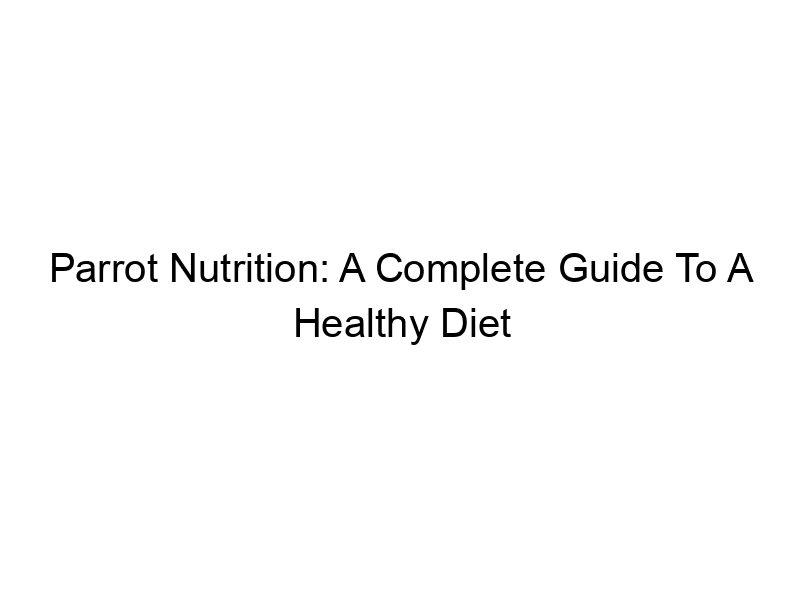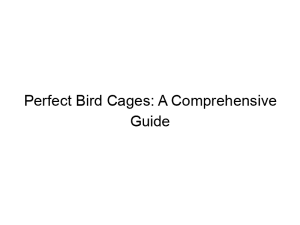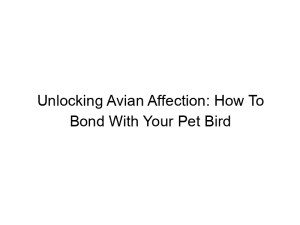Owning a parrot is a rewarding experience, but providing proper nutrition is crucial for their health and longevity. This comprehensive guide, The Ultimate Guide to Parrot Nutrition: What to Feed and What to Avoid, will equip you with the knowledge to ensure your feathered friend thrives. We’ll cover everything from essential nutrients to toxic foods, helping you create a balanced and delicious diet for your parrot. Learn what to feed your parrot, what to avoid, and how to spot signs of nutritional deficiencies. Let’s dive in!
Parrots, being highly intelligent and active birds, require a diverse diet rich in essential nutrients. These include vitamins (A, D, E, K, B complex), minerals (calcium, phosphorus, potassium, magnesium), proteins, fats, and carbohydrates. A deficiency in any of these can lead to serious health problems, including
weakened immune systems, feather problems, and reproductive issues. High-quality pellets should form the foundation of your parrot’s diet, providing a balanced blend of these nutrients. However, supplementing with fresh foods is essential for optimal health.
The Importance of a Varied Diet
Avoiding Nutritional Deficiencies
A monotonous diet can lead to various nutritional deficiencies. Just like humans, parrots benefit from a wide range of fruits, vegetables, and other healthy foods. This variety ensures they receive the full spectrum of vitamins and minerals necessary for optimal health. Consider offering a diverse selection daily, rotating options to prevent boredom and ensure complete nutritional coverage. A healthy parrot exhibits bright feathers, energetic behavior, and a strong immune system.
Choosing the Right Parrot Food
High-Quality Pellets: The Cornerstone of a Healthy Diet
Commercial parrot pellets are a crucial component of a healthy diet. Opt for high-quality, formulated pellets that meet the specific nutritional needs of your parrot’s species and age. Avoid generic mixes or pellets with excessive fillers. Read labels carefully, looking for balanced formulations with added vitamins and minerals. Many reputable brands cater to different parrot sizes and species, ensuring you choose the most appropriate product. A good pellet will be readily accepted by your parrot and contribute significantly to their overall health.
Fresh Fruits and Vegetables: An Essential Supplement
A Rainbow of Nutritious Options
Fresh produce is vital for supplementing the nutrients provided by pellets. Offer a variety of fruits and vegetables daily, ensuring they are washed thoroughly before serving. Good options include apples, bananas, berries, carrots, broccoli, kale, and spinach. Experiment with different options to find your parrot’s favorites, ensuring variety in color, texture, and nutritional composition. Remember to remove any uneaten portions to prevent spoilage and bacterial growth. Introduce new foods gradually to avoid digestive upset.
Healthy Fats and Proteins for Parrots
Sources of Healthy Fats and Proteins
Healthy fats are essential for maintaining a parrot’s feathers, skin, and overall health. Good sources include small amounts of nuts (unsalted and unprocessed), seeds (sunflower, pumpkin, flax), and avocado (in moderation). Proteins are vital for muscle growth and repair. Offer cooked beans (not raw), lentils, and occasionally, a small amount of lean, cooked chicken or fish. Avoid excessive amounts of fatty foods or those that are heavily processed, as they can contribute to health issues.
Foods to Avoid: Toxic and Harmful Ingredients
Toxic Foods: What to Absolutely Avoid
Several common foods are toxic to parrots and should be strictly avoided. These include avocado, chocolate, caffeine, alcohol, onions, garlic, and certain types of nuts (like macadamia nuts). Even small amounts of these foods can cause serious illness or even death. Keep these foods out of reach, and educate household members about their toxicity to parrots. Always prioritize your bird’s safety by removing any potential hazards from their environment.
Understanding Your Parrot’s Dietary Needs Based on Species
Species-Specific Nutritional Requirements
Nutritional requirements vary slightly depending on the parrot species. Larger parrots generally require a higher calorie intake than smaller parrots. Some species may have specific preferences or sensitivities to certain foods. Consult with an avian veterinarian or an experienced parrot breeder to determine the most appropriate diet for your specific parrot species. Researching the natural diet of your parrot in the wild can offer valuable insights into their nutritional preferences.
Recognizing Signs of Nutritional Deficiency
Identifying Nutritional Deficiencies in Your Parrot
Several symptoms can indicate nutritional deficiencies. These include dull, brittle feathers, weight loss, lethargy, behavioral changes, weakened immune system, and digestive issues. If you notice any of these signs, consult with an avian veterinarian immediately. They can perform tests to identify any deficiencies and recommend appropriate dietary adjustments. Early intervention is crucial for resolving nutritional problems and preventing long-term health complications.
Supplementing Your Parrot’s Diet
When and How to Use Supplements
While a balanced diet should provide most of the necessary nutrients, supplements might be necessary in certain cases. This could be due to a specific deficiency identified by a vet, an illness, or particular life stages like breeding. Only use supplements recommended by an avian veterinarian to prevent potential health complications. Over-supplementation can be as harmful as under-supplementation. Always follow the veterinarian’s instructions carefully when using dietary supplements.
Preparing Food for Your Parrot: Safety and Hygiene
Safe Food Handling Practices
Proper food preparation and hygiene are essential to prevent bacterial contamination. Wash all fruits and vegetables thoroughly before offering them to your parrot. Avoid using pesticides or herbicides on food intended for your parrot. Prepare food in a clean environment, using separate utensils and surfaces to prevent cross-contamination. Discard any uneaten food promptly to prevent spoilage and bacterial growth. Clean and sanitize your parrot’s food bowls and water dishes regularly.
Creating a Meal Plan for Your Parrot
Developing a Balanced and Varied Diet
A successful meal plan should balance pellets, fresh foods, and occasional healthy treats. Start by providing a base of high-quality pellets. Then, add a variety of fresh fruits, vegetables, nuts, and seeds. Rotate these options regularly to ensure your parrot receives a wide range of nutrients. Consider preparing food ahead of time and storing it properly to maintain freshness and convenience. Record your parrot’s food intake to track their consumption and ensure they are getting enough calories.
The Role of Water in Parrot Nutrition
Providing Fresh, Clean Water
Access to clean, fresh water is crucial for parrot health. Provide ample water in a clean, easily accessible dish. Change the water daily to prevent bacterial growth. Consider offering different types of water receptacles to ensure your parrot can easily drink, and monitor their water intake as a sign of their overall health. Dehydration can lead to various health issues, and constant access to clean water is essential for their well-being.
Common Mistakes in Parrot Nutrition
Avoiding Common Dietary Pitfalls
Many parrot owners make common mistakes in their bird’s nutrition. These include relying solely on seeds, offering too many sugary treats, and not providing enough fresh foods. Remember, seeds are not a complete diet and lack essential nutrients. Sugary foods can contribute to health problems. Balance is key—a variety of healthy options is crucial for optimal parrot nutrition. Avoiding these mistakes will contribute significantly to your parrot’s health and longevity.
Monitoring Your Parrot’s Weight and Overall Health
Regular Check-ups and Monitoring
Regularly weigh your parrot to monitor weight changes. Sudden weight fluctuations can indicate underlying health problems, including dietary issues. Observe your parrot’s behavior, feathers, and overall energy levels for any signs of illness. Consult with an avian veterinarian at least once a year for routine check-ups. Early detection of health problems can significantly improve treatment outcomes. A proactive approach to your parrot’s health ensures their well-being and longevity.
Choosing the Right Veterinary Care
Finding an Avian Veterinarian
Finding an experienced avian veterinarian is essential for ensuring your parrot receives the best possible care. Avian vets specialize in bird health and have the knowledge and expertise to diagnose and treat a range of conditions. They can provide guidance on nutrition, diagnose illnesses, and recommend treatments. Research vets in your area, and consider factors like experience, qualifications, and client reviews. Regular check-ups and prompt veterinary attention are essential for ensuring your parrot’s health.
Frequently Asked Questions
What are the best types of pellets for my parrot?
The best pellet type depends on your parrot’s species, age, and size. Look for high-quality brands with minimal fillers and a balanced nutrient profile. Consult with an avian vet for recommendations.
How much fresh produce should I offer my parrot daily?
A good rule of thumb is to offer a variety of fresh fruits and vegetables that together make up about 20-30% of their total daily intake.
Can I give my parrot human food?
Many human foods are toxic to parrots; avoid giving them anything not specifically intended for birds unless recommended by a vet.
What are the signs of a nutritional deficiency?
Signs include dull feathers, weight loss, lethargy, and weakened immune function. Consult your vet if you notice these symptoms.
How often should I change my parrot’s water?
Change your parrot’s water at least once a day, twice is better to ensure fresh, clean water is constantly available.
How can I determine if my parrot is overweight or underweight?
Regular weigh-ins are essential. Consult with your avian vet to determine the ideal weight range for your parrot’s species and size.
My parrot is picky; how can I encourage them to eat a variety of foods?
Gradually introduce new foods, mixing them with familiar favorites. Offer small portions, and be patient. Positive reinforcement can help.
Final Thoughts
Providing optimal parrot nutrition is a commitment that significantly impacts your bird’s health, lifespan, and overall well-being. By understanding your parrot’s specific needs, selecting high-quality foods, avoiding harmful ingredients, and monitoring their health closely, you can ensure they live a long and happy life. Remember that regular veterinary check-ups are crucial, providing guidance and early detection of any potential health issues. A balanced and varied diet, combined with attentive care, is the key to a thriving companion parrot. Start implementing these strategies today and watch your feathered friend flourish! Remember to consult with an avian veterinarian for personalized advice tailored to your parrot’s specific needs and species. Their expertise will help you build a robust and comprehensive feeding plan to ensure your parrot receives optimal nutrition.




